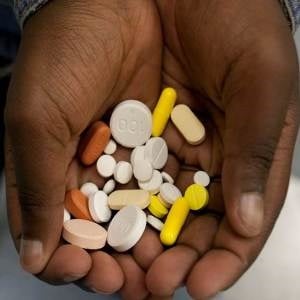
Long treatment regimens, bitter-tasting adult-size tablets and painful injections with serious side effects are some of the challenges researchers at Stellenbosch University (SU) are tackling in order to try and ease the treatment of children with TB.
Easy to swallow
Despite these challenges, most children do well on treatment, says Prof Anneke Hesseling, director of the Desmond Tutu TB Centre (DTTC) at SU’s Faculty of Medicine and Health Sciences (FMHS).
“We can cure children with TB, but the challenge is to make the treatment more child and family friendly by making the regimen shorter and giving children medication that is easy to swallow,” says Hesseling, whose team is doing pioneering research aimed at addressing the challenges of paediatric TB.
Read: Better treatment for babies with TB
The current treatment regimen for a child with drug-sensitive TB lasts six months, while treatment for multi-drug resistant TB can last between 12 and 18 months – including six months of daily injections during which the child most often is hospitalised.
“There are fewer actual TB organisms in a child with pulmonary [lung] TB and therefore fewer organisms to kill. So there is a real opportunity to shorten the treatment for drug-sensitive TB in children,” says Hesseling, a distinguished professor of paediatrics at the FMHS.
Her research group is testing new treatment strategies to try and shorten the treatment regime for drug-sensitive TB from six to four months for children with non-severe forms of the disease. This trial will utilise a new child-friendly formulation that combines all the TB drugs (fixed dose) in a small, pleasant-tasting tablet that can be dissolved in water.
Read: World first: child-friendly tuberculosis treatment will be available from 2016
Currently adult-size tablets have to be halved, quartered or crushed in order to administer the correct doses to infants and children. “These tablets were made to be swallowed whole and taste terrible when you crush them,” says Dr Tony Garcia-Prats, medical director of Brooklyn Chest Hospital and head of the Paediatric Pharmacokinetics Unit at the DTTC.
A new TB drug
With their research into the safety and dosing of new drugs in children, they also hope to shorten the treatment for multi-drug resistant TB (a strain of TB resistant to most first-line drugs) from the current 12 to 18 months, to six to nine months, and also do away with older toxic drugs, including the six months daily injections which can lead to permanent hearing loss.
Read: How to manage the side effects of TB medication
The DTTC is part of the first ever trial of a new TB drug (delamanid) in children and will also contribute to studying the safety and dosing of a drug (bedaquiline) that recently came on the market. “Bedaquiline has been licensed in South Africa since October 2014, yet children still have no access to it because no paediatric research has been done,” says Garcia-Prats.
Their research on delamanid has already helped to identify its paediatric dosing and show its safety in children six years and older, which has led to it becoming available for compassionate use in this group.
Read more:
What is multidrug-resistant TB (MDR-TB)?
How can tuberculosis be prevented?




 Publications
Publications
 Partners
Partners










